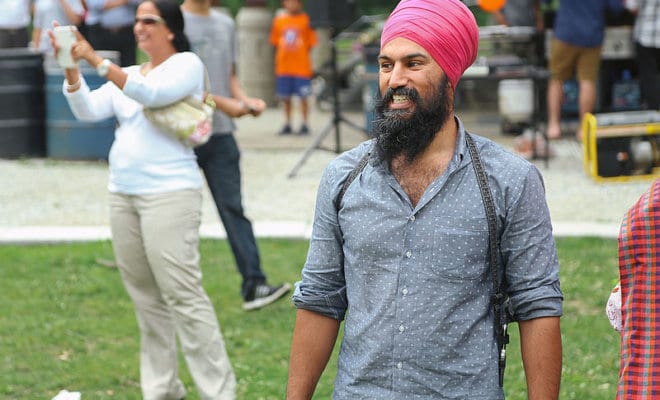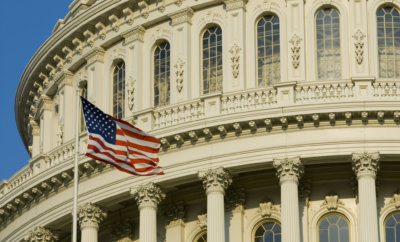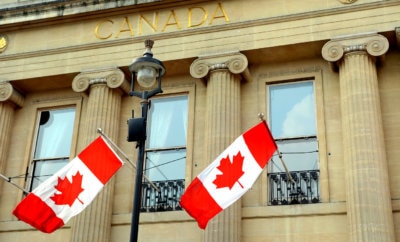Immigration
Canadian Sikh Leader Cornered Over Ties with Khalistan Supporters

Jagmeet Singh
Photo: Wikimedia Commons
Jagmeet Singh said that he attends Sikh nationalist events in Canada because he views them as an opportunity to share his beliefs.
Canada’s New Democratic Party leader Jagmeet Singh is once again in the news over his association with Sikhs who are said to support the separatist Khalistan movement in India.
Singh, who made headlines last year when he became the first Sikh Canadian individual to lead the party, recently said during a television interview that he attends Sikh nationalist events because he views them as an opportunity to share his beliefs, and that he won’t hesitate to attend such events in the future. Appearing on CTV’s Questions Period with Joyce Napier, Singh said that he uses his events to speak of the discrimination he faced as a Sikh in Canada.
During the interview, he also acknowledged that Talwinder Singh Parmar was the mastermind behind the Air India bombings in 1985 that killed 329 people, including 268 Canadians. In an earlier interview he had said that he unequivocally condemns those responsible. However, this time he said he condemned Parmar specifically.
Singh said that he doesn’t condone violence but supports peaceful and democratic discussion of the issue.
Canada Prime Minister Justin Trudeau’s recent India visit also gathered controversy over Canada’s ties to the Khalistan movement and became a PR nightmare for the leader.
Meanwhile, the Globe reported that Singh had attended a seminar in 2016 with Shamsher Singh, the co-founder of the British-based National Sikh Youth Federation. The group endorses political violence as a “legitimate form of resistance” to create Khalistan, Shamsher Singh was quoted as saying in the report.
In another event in June 2015, Singh had appeared on stage at a Khalistan rally in San Francisco. The rally had a poster of Jarnail Singh Bhindranwale, the leader of the Khalistan movement in the 1980s.
He was also reported to have expressed sympathy for survivors of the “genocide” in 1984 in India, referring to the death of the 3,000 Sikhs in the riots that took place after the then Indian Prime Minister Indira Gandhi was killed by her two Sikh bodyguards in 1984.



